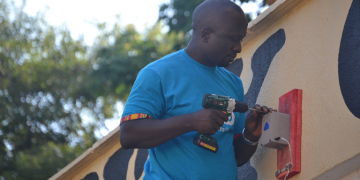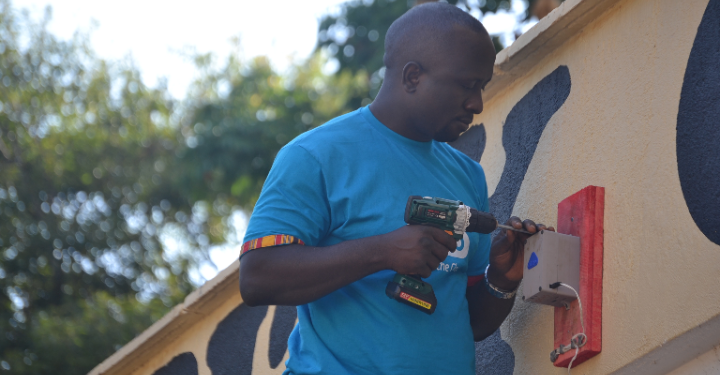The AirQo Project of Makerere University will receive a $3 million grant from Google.org as part of Google’s philanthropic commitment to renew its support for Africa innovations.
The funding will enable the AirQo project to expand its pioneering air quality monitoring work to ten cities in five countries across the continent.
Speaking during Google’s first-ever Google for Africa event on October 6, 2021, held virtually and live-streamed, Ruth Porat, the Senior Vice President and Chief Financial Officer, Alphabet and Google, said that the new grant funding will see the AirQo project expand the pioneering work on Artificial Intelligence (AI) and sensors from Kampala to 10 new cities to tackle air pollution, a leading cause of premature deaths.
“The $40 million in funds will build on Google’s work and help find more partners who are responding and innovating to challenges they see first hand in their communities,” noted Porat.
The AirQo project aims to contribute to the improvement of urban ambient air quality by developing and deploying low-cost air quality monitoring networks. The air quality monitors use cloud-based AI models and software to quantify and inform action and policy interventions to reduce and better manage air pollution and its associated health risks.
AirQo has deployed over 100 locally-built low-cost air quality monitoring devices across Kampala and other Ugandan cities. AirQo’s digital platforms, which include AI-powered air quality portals and apps, are empowering communities with information about the quality of the air they breathe.
Professor Engineer Bainomugisha, the Lead AirQo Project, noted that the new funding is a big milestone not only to the project but to the African continent, and it will ensure that more African cities have increased capacity and access to evidence to raise awareness and tackle air pollution.
“We are excited to have received the new Google grant. The grant supports the expansion of AirQo’s work beyond Uganda and thereby advancing our mission to collect, analyse and model air quality data and work with partners to reduce air pollution and raise awareness of its effects in African cities. Our vision is to ultimately achieve cleaner air in cities across the African continent” noted Prof. Engineer.
“We will be empowering more African cities with information on the quality of air which will in turn help authorities develop policies and take actions to combat air pollution in their respective countries and cities,” Prof. Engineer noted.
Measuring air quality in Africa is still a challenge as most cities in the continent do not have the means to do so due to the high costs of equipment needed to measure air quality. However, African-led initiatives such as AirQo are a sustainable solution to measuring air quality.
According to the World Health Organisation (WHO), air pollution contributes to over 7 million premature deaths annually. In Uganda, ambient air quality levels in monitored urban centres are estimated to be over 5 times the WHO’s 2005 annual guidelines with over 30,000 people dying annually due to air pollution-related illnesses.











